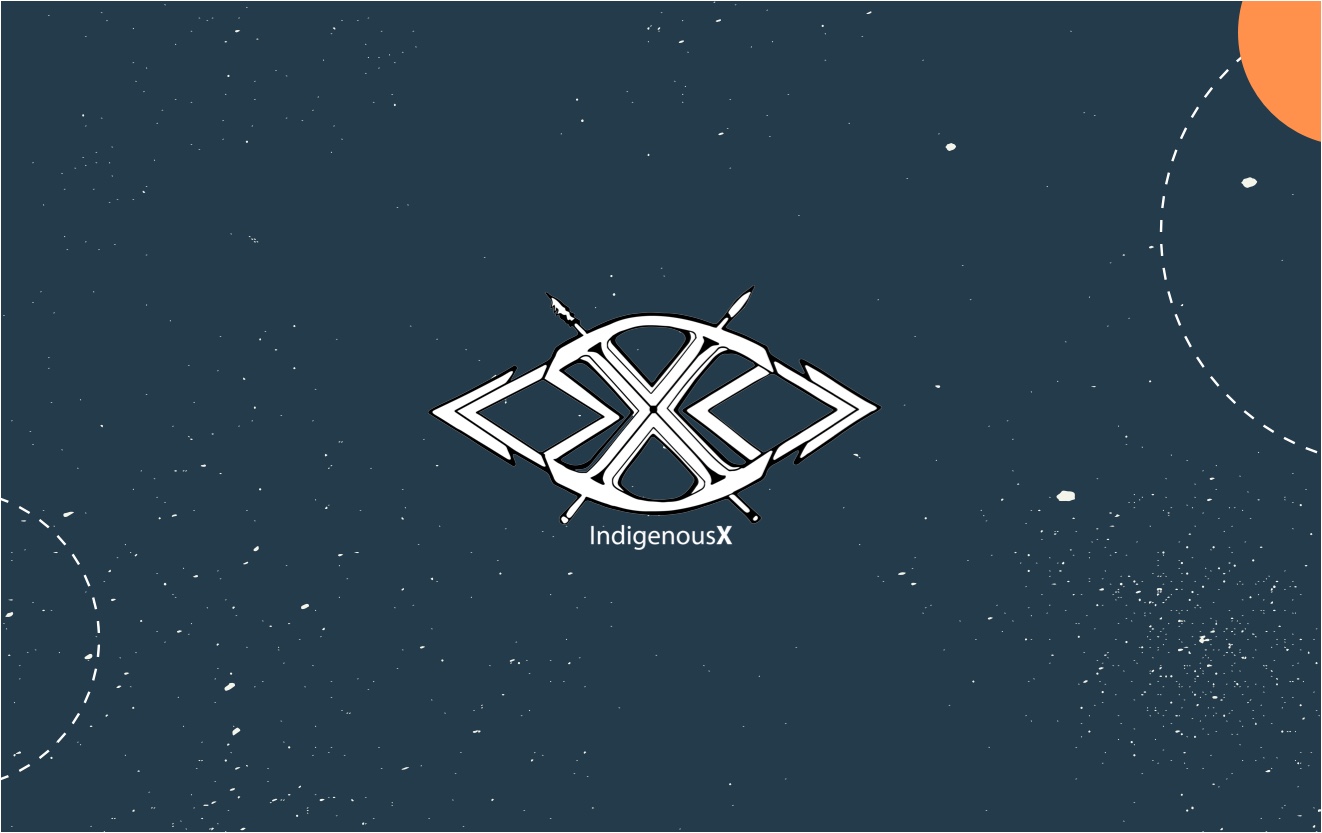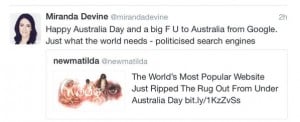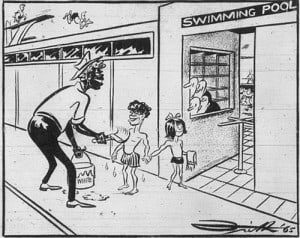Keeping politics out of Australia Day

I’m the first to admit that I think a lot about seemingly random stuff… I like to unpack things that are said to see what deeper meaning they might represent, or what patterns of thought or inconsistencies they might reveal.
Like the dehumanising aspect of something as seemingly trivial as when media choose to not capitalise the word ‘Indigenous’ when every other group gets a capital letter. Or what people really mean when they say that ‘Aboriginal people didn’t even invent the wheel’. I have written about both of these things more than once, and probably will again. As is my wont.
I have also long pondered why pubs in Australia still have a rule that says they can kick someone out without a reason, even though all of the actual reasons are clearly stated “being too drunk, not meeting a dress code, antisocial behaviour, violence” etc etc.
Did you know that in NSW in the 1950s, back when Aboriginal people were not allowed in bars, there was a trial to let Aboriginal people drink in bars with other patrons. It was short lived and the ban was reinstated soon after. Those who follow the logic that the reason for high Indigenous incarceration rates can only be due to criminality would likely hear that and say “See? They obviously couldn’t hold their liquor!”… but the truth is that it was canned because white people lost their frickin’ minds over it. Many publicans openly said they would maintain the colour ban, and many police said they would still enforce the law even if it wasn’t actually a law anymore. So when, years later, they finally lost the battle to have white only pubs they kept a rule that basically said they could maintain the colour ban, they just couldn’t openly say that was the reason anymore. Many people still understand that the rule is still effectively in place in many pubs right around Australia, in cities and in rural and remote areas, and as long as no one actually names it then they are well within their legal rights to do so.
I don’t know if that is the history of that rule, but it definitely plays a role in its implementation today, but I digress… what I was saying is that I like to ponder such ‘mysteries’ that are rarely spoken about. The links between the overt racist practices of yesteryear and the covert racist practices of today.
Today on twitter there was much talk about the recycled Google doodle, a drawing of Aboriginal people made by a young non-Aboriginal woman that when you clicked on it took you to a Google search of ‘Australia Day’. A fairly subtle point from Google that Aboriginal people exist. Some took it as a gesture of polite protest. Some took it as a gesture of respect. Some people on Facebook questioned why it was a non-Aboriginal artist who won the competition, and others questioned the outcome that when you clicked on it the search didn’t really tell you anything about Aboriginal people (that in itself carries significance). One right wing columnist however, decided that it was a “F U to Australia” from Google and condemned having such ‘politicised search engines”. The comments were pretty funny given who said them, but it made me remember an article about some of the backlash from this year’s lamb ad where it said that “[Sam] Kekovich said he wanted to keep the conversation around Australia Day free from politics”… then I remembered another quote “Just being Aboriginal is a political statement” (if you know who to attribute for this, please let me know!).
You see where I’m going here… I had always thought that the idea of ‘keeping politics out of Australia Day’ was a weird concept when at the same time people say it’s about celebrating living in a democracy and so on and so forth. The 26th of January seems like a horrible choice for a day that people are hoping not to have politics come into it, and that’s even for those people who aren’t using ‘politics’ to be synonymous with ‘Aboriginal’. And to clarify, I’m not suggesting that everyone who says this is using a secret white people code to say “No Aborigines allowed!”, just like not every publican who kicks someone out of a pub without giving them a reason is using it against Aboriginal people, but it’s not without its merit to suggest that it is exactly what some people mean whether they admit it or are even cognisant of it themselves.
Google didn’t put up a picture of Gary Foley holding a sign saying “Pardon me for being born into a nation of racists” or a picture of Nicky Winmar lifting his shirt and using his middle finger to point to the colour of his skin, or even a picture of Adam Goodes and the infamous ‘imaginary spear’, although I think it would’ve been pretty cool if they did, but they didn’t… they just had a drawing of Aboriginal people, drawn by a non-Aboriginal girl. No signs, no reference to Invasion Day or Survival Day, just a drawing of Aboriginal people.
This is part of the reason I mentioned the pub example. Some white people in Australia like to imagine that the moment racist rules stopped being on the books that all the racism magically disappeared on that very day. It was not so long ago that Aboriginal people weren’t not allowed in pubs, and were not welcome at ‘Australia Day’ events (or the various names it has gone by over the years). And just because those rules are no longer enforced overtly by law doesn’t mean they aren’t still able to be enforced covertly, legally and illegally, or able to be discussed using non-racist language to promote racist ideologies.
The truth is that Australia has never stopped locking up Aboriginal people en masse, stealing Aboriginal children from families, denying Aboriginal people services or providing substandard service, dislocating Aboriginal communities, stealing Aboriginal land, or generally wishing that we’d all just ‘go away’ – in one way or another.
The only thing that has changed is the language used to describe it. Racism by any other name.






